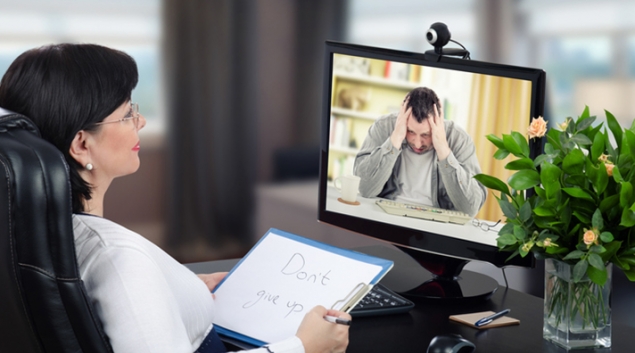Though mental health professionals say they’re mostly pleased with the rapid shift to phone or video services, most plan to return to in-person care once the dangers from COVID-19 have subsided.
The massive and quick evolution of technology reflects in medical services as well. The innovative wave of healthcare called telemedicine is slowly but surely penetrating the mental health-related area. Telehealth has the ability to help patients in need gain access to mental healthcare services. This is especially important if we consider the vast amount of people living in rural areas which can barely get access to mental health care.
The main benefits that telemedicine can bring for patients requiring treatment are the reduction of follow-up no show rates, eliminating the therapists’ long hours of work and having a therapist offering care to more patients than before.
Main Benefits For Therapists
Mental health therapists definitely understand the time constraints that they are under in order to be able to provide the highest quality possible care and at the same time having to juggle with a hectic schedule. Telemedicine can become a massive benefit for therapists’ practice because it can increase their revenue, boost the flow of patients that they are able to see in a shorter amount of time and last but definitely not least, enhancing patient care. Patient care can be optimized by offering them more versatile and flexible options for scheduling and attending the medical sessions since they are remote.
Due to the shortage of mental health therapists the traditional healthcare system, professionals usually have to deal with hectic schedules and telemedicine can help with this aspect as well via the remote sessions that don’t require visiting the medical office.
Main Benefits For Patients In Need of Mental Healthcare
Patients can enjoy a strong emotional relationship that’s created between themselves and the therapists even if the meetings are remote. Mental healthcare experts are highly trained to be able to build such relations with their patients even via video/audio sessions. This can also make the patient feel more secure and less exposed especially if they have to deal with mental health issues such as anxiety and a feeling of stigmatization due to their issues.
More than that, the mental healthcare services are becoming more accessible in terms of pricing as well for the patients. Mobile challenged patients can also benefit from remote sessions with their doctors for obvious reasons.
Overall, patients can feel more secure, private and protected in the intimacy of their homes while at the same time enjoying the benefits of lowers costs and getting appropriate treatment from highly trained experts.

